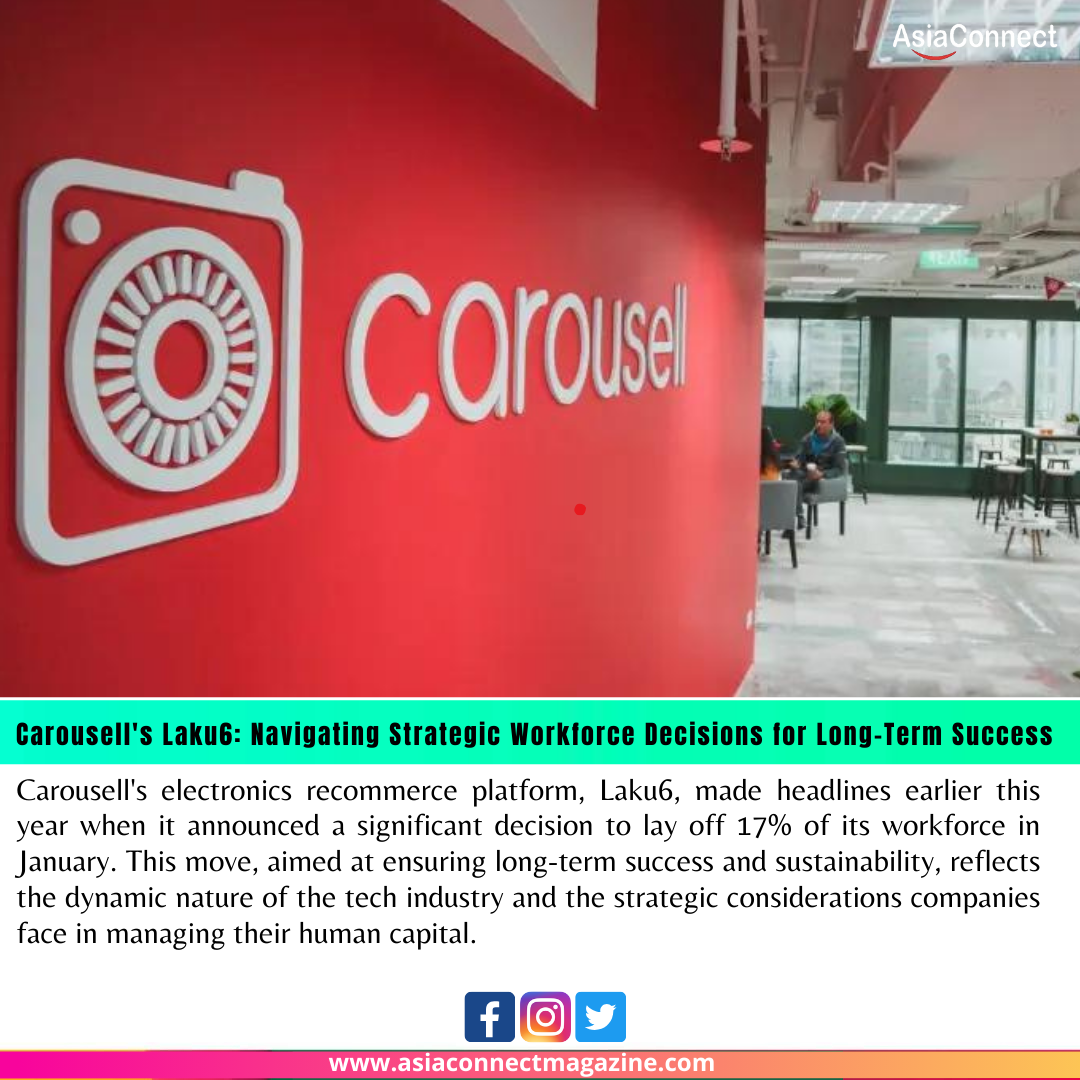Carousell’s electronics recommerce platform, Laku6, made headlines earlier this year when it announced a significant decision to lay off 17% of its workforce in January. This move, aimed at ensuring long-term success and sustainability, reflects the dynamic nature of the tech industry and the strategic considerations companies face in managing their human capital.
The decision to reduce the workforce at Laku6 underscores the company’s commitment to optimizing operational efficiency, aligning resources with strategic priorities, and adapting to market dynamics. In a competitive landscape where innovation and agility are paramount, companies often undergo strategic workforce adjustments to remain agile, resilient, and focused on long-term growth.
Laku6, a subsidiary of Carousell specializing in the recommerce of electronics, operates in a dynamic and rapidly evolving market. The recommerce sector, which involves the resale of used or pre-owned electronic devices, experiences fluctuations in demand, market trends, and competitive pressures. In such an environment, companies must proactively evaluate their workforce composition to stay competitive and sustainable.
The decision-making process behind the workforce reduction at Laku6 likely involved a comprehensive analysis of business performance, market conditions, and future growth prospects. Factors such as changing consumer preferences, technological advancements, and industry disruptions may have influenced the strategic considerations leading to this decision.
It’s essential to note that strategic workforce decisions, including layoffs, are often challenging but necessary steps taken by companies to realign resources, streamline operations, and focus on core objectives. While workforce reductions can be disruptive, they are sometimes vital for companies to optimize their cost structures, enhance efficiency, and allocate resources strategically.
Laku6’s emphasis on long-term success and sustainability underscores its commitment to weathering industry challenges, seizing growth opportunities, and delivering value to customers and stakeholders. The company’s ability to adapt and evolve in response to market dynamics reflects its resilience and strategic foresight in navigating the recommerce landscape.
The impact of the workforce reduction on Laku6’s operations, culture, and future trajectory will depend on various factors, including how the company manages the transition, supports affected employees, and leverages remaining talent effectively. Transparent communication, employee support programs, and strategic realignment will be crucial in ensuring a smooth transition and maintaining organizational morale and productivity.
In today’s fast-paced business environment, companies must continuously evaluate and optimize their human capital strategies to remain competitive and sustainable. Strategic workforce decisions, such as workforce reductions, are part of this strategic evolution, enabling companies like Laku6 to adapt, innovate, and thrive in dynamic markets.
Looking ahead, Laku6’s focus on long-term success and sustainability will guide its strategic initiatives, growth strategies, and operational excellence. As the recommerce sector continues to evolve and expand, companies that demonstrate resilience, agility, and strategic vision will be well-positioned to capitalize on emerging opportunities and deliver value in the digital economy.





